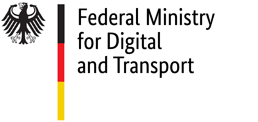Medical requirements
What are the most important changes in terms of medical requirements that have been introduced by the "Seelotseignungsverordnung"?
The most important changes in terms of medical requirements introduced by the "Seelotseignungsverordnung" are the introduction of a stress ECG (previously it was a resting ECG) and the extension of the examination of 4 blood levels (ALT, AST, HbA1, creatinine). The exact extend of the examination is given in Annex 1 of the "Seelotseignungsverordnung".
Why is a stress ECG required?
Sea pilots have to have a basic level of fitness in order to perform their job, for example to climb up and down the pilot ladder without any problems. With a stress ECG, possible health issues such as a heart condition can be detected reliably in accordance with scientific standards. Therefore, the examination provides a protection for the sea pilot him- or herself and ensures safe piloting for safe maritime navigation at any time.
Which requirements apply for the stress ECG?
The requirements for the stress ECG of sea pilots follow the state of scientific knowledge, currently this is in accordance with the guidance "Leitfaden für die Ergometrie bei arbeitsmedizinischen Vorsorgeuntersuchungen nach DGUV Grundsätzen" by the German Social Accident Insurance (DGUV) from October 2014. The stress ECG is conducted in a sitting position on a bicycle ergometer. The maximum performance (in watts) depends on sex, age and weight of the person examined. For example, a 50-year old man weighting 80 kg has to achieve a maximum performance of 170 watts.
Does the stress ECG replace the provisions regarding the body mass index?
No, sea pilots have to meet both the provisions for the stress ECG as well as the body mass index (BMI), because each method can detect different medical conditions. A stress ECG can identify potential heart diseases and arterial hypertension. A BMI of 40 kg/m2 and above (= exclusion from fitness as sea pilot) is categorized as severe obesity (Class III) where the risks for accompanying illnesses (comorbidities) is especially high. These accompanying illnesses do not only comprise cardio-vascular diseases but also metabolic disorders (e.g. diabetes mellitus type 2), diseases of the musculoskeletal system (e.g. knee and hip arthrosis) or organ diseases (e.g. kidneys, liver or gall bladder).
I have elevated creatinine levels because I do lots of sport. Is that a problem for my fitness as sea pilot?
No, if the reason for the elevated creatinine levels is intensive exercising and this can be proven, there is no issues for the fitness as sea pilot. The individual health of the person examined are taken into consideration when evaluating the limit values.
Why are there no stricter health requirements for sea pilot aspirants in comparison to sea pilots anymore?
The previous assumption that older sea pilots can only meet the health requirements if stricter requirements apply for career starters (sea pilot aspirants) was unsubstantiated. It is essential that all sea pilots meet minimum health standards regardless of their age. Moreover, the harmonisation of the requirements of career starters and experienced sea pilots in the Maritime Medicine Regulations in 2014 has proven its worth. Therefore, the previously stricter requirements for sea pilot aspirants have been aligned in the "Seelotseignungsverordnung".
Which rules apply for sea pilots operating outside of the pilotage regions?
The same provisions apply as for sea pilots inside the pilotage regions. Long-range sea pilots may not have any additional medical limitations in accordance with the German Maritime Medicine Regulations annex 1 table 6.2 column 5. This concerns listed health disorders that would exclude from employment on sea-going vessels on worldwide voyages.

